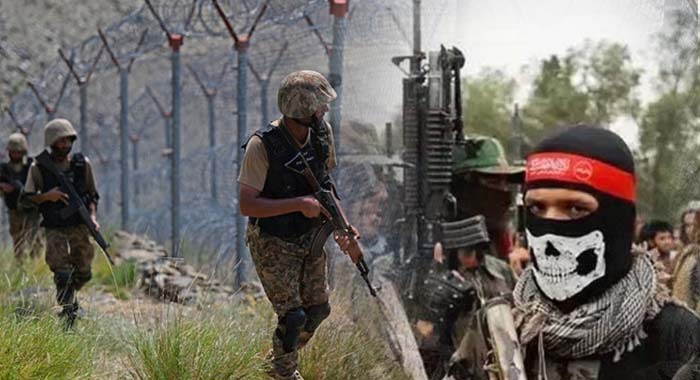(Ahmad Ali Shah)
Afghanistan has a complicated history of unrest within its domestic politics, foreign interference, the Afghan civil war and the Taliban regime. This intervention has turned Afghanistan into a destabilized state after the United States invaded on Afghanistan in response of post-9/11. In the instance of being a neighbor, Pakistan has been sheltering millions of Afghanistan refugees. This has turned Pakistan into one of the largest, and longest-running countries in the world by hosting refugees. After accommodating of Afghan refugees over 45 years, Pakistan has now made some hard decisions to send these refuges back into Afghanistan. The Pakistani government’s attitude toward refugees has largely mirrored the ups and downs of its relationship with Kabul, when the relations with Kabul fail, Afghan refugees are blamed in committing criminal and terrorism activities.
The Pakistani government has Justified the recent crackdown on refugees, “Beginning in late 2023 and continuing into 2025, Pakistan has witnessed a surge in militant violence that has claimed hundreds of lives, including those of security personnel and civilians.
Most of these incidents have occurred in Khyber Pakhtunkhwa and Balochistan, the two provinces bordering Afghanistan. According to Director General of Inter-Services Public Relations (ISPR), much of this wave of attacks is caused by the Tehreek-e-Taliban and Balochistan Liberation Army (BLA), these groups belongs to Indian-proxy Fitna al-Khawarij. India’s foreign policy has been especially active in its dealings with Afghanistan. It has leveraged the strained Pakistan-Afghanistan relationship to strengthen its ties with the Afghan Taliban, aiming strategically to counter Pakistan’s influence in the region.
In the past, India greatly invested in Afghanistan under Hamid Karzai and Ashraf Ghani, and allocated billions of dollars on their infrastructure, economic and military undertakings. During that era, India maintained a significant presence in Afghanistan, operating the largest number of consulates. According to various reports these consulates were allegedly utilized by the Indian intelligence agencies to accused Pakistan in the eyes of Afghani and international media.
In international relations, the notion that ‘the enemy of my enemy is my friend’ aptly applies here; India’s engagement with the Taliban government can be interpreted as a strategic maneuver aimed at countering Pakistan’s interests.
Surprisingly, Pakistan has repeatedly accused Kabul of harbouring militants responsible for cross border attacks. The Taliban government has also provided shelter to TTP leaders and fighters in Afghanistan and it has been unwilling to act against the TTP rebels. In retaliation Pakistan has targeted the Taliban hideouts and succeeded. However, Afghanistan does not realize that it is hosting a massive refugee population in Pakistan. About 1.2 million Proof of Registration (PoR) cardholders, 737,000 ACC holders, and 115,000 asylum seekers that stay in Pakistan. The ultimate sufferers are ordinary Afghans, many of whom have long regarded Pakistan as their second home.
Furthermore, the recent earthquake measuring 6.3 Richter in Afghanistan resulted in over 2,200 fatalities, more than 4,000 injuries, and left thousands displaced and homeless amid in ongoing humanitarian crisis. Health problem is yet another escalating crisis for Afghani migrants, during Taliban regime, several hospitals were collapsed and until now neither newly buildings have been constructed nor repaired. A September 2025 WHO report indicates that more than 80 per cent of the population have no access to basic medical. Post-traumatic stress disorder (PTSD) and depression have affected one in every three Afghans as a result of 3-4 decades of war and displacement. However, access to psychiatric treatment remains extremely limited, with only a few overburdened mental health centers operating in the capital city, Kabul. Owing into minds the recurring tragedies, the repatriation crisis for Afghan refugees a collaborative approach is required between Afghanistan and Pakistan.
There is a famous quote, when two elephant fights, it is the grass that suffers. For this, both governments should take essential steps to reduce tension and promote regional stability. Afghan government will play role in by dismantling TTP sanctuaries or they should surrender the key Taliban militants to Pakistan, while Pakistan should adopt more flexible policy for Afghan migrants in Pakistan to normalize the escalating conflict. Such cooperation could rebuild confidence, reduce inter-state violence, and promote mutual stability.





